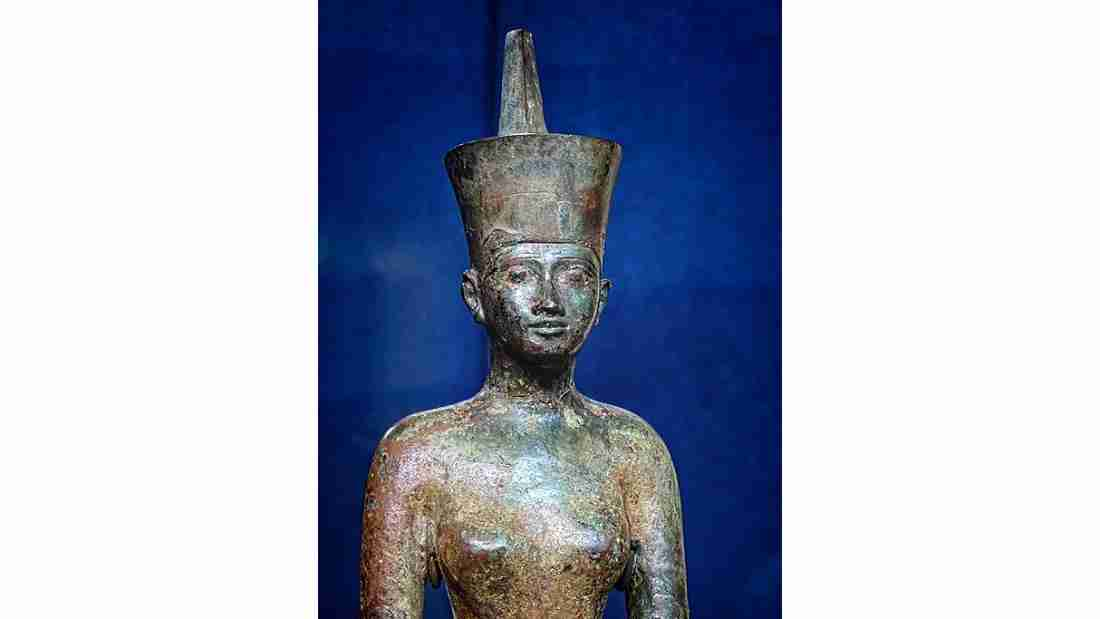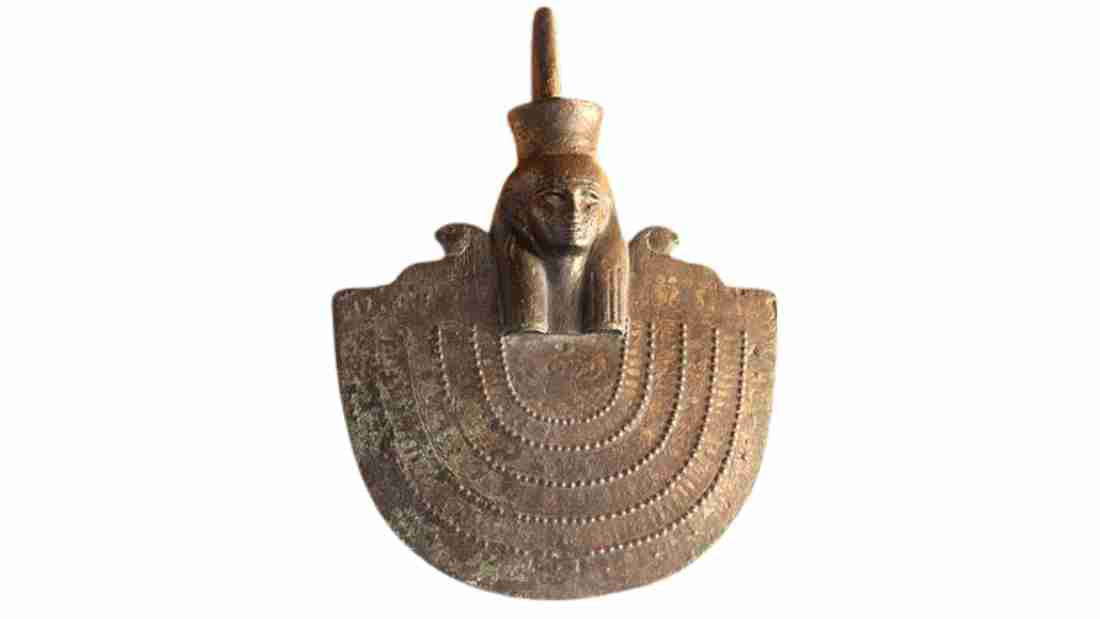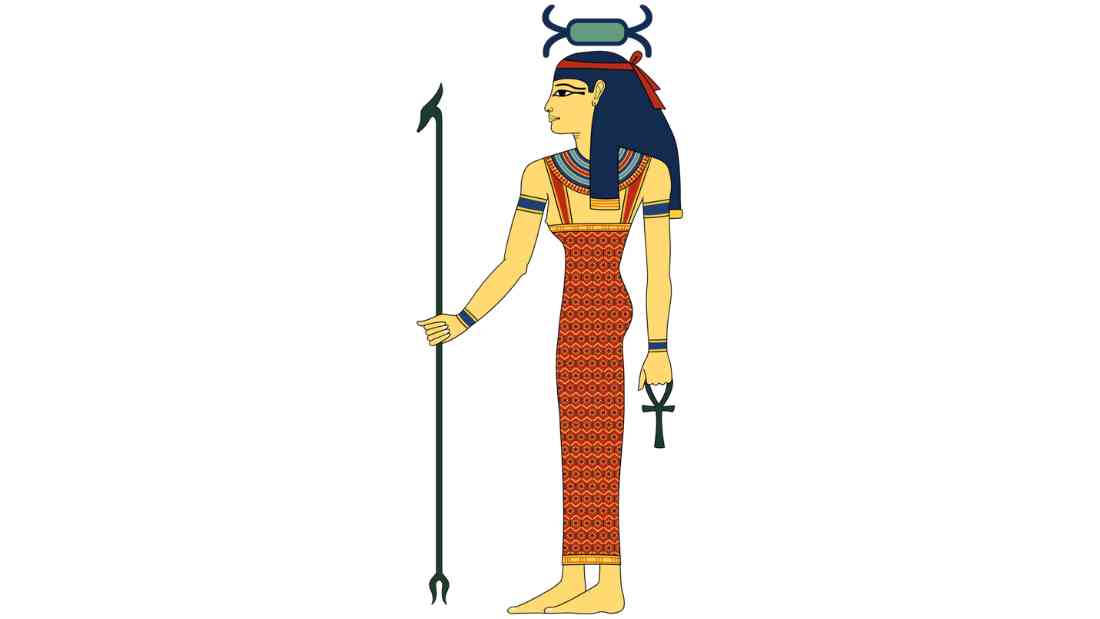In ancient Egyptian cosmogony, the warrior goddess Neith emerges as a primordial force closely associated with the waters of creation. Her presence predates the established order and resonates with the very essence of existence itself.
As the Mistress of the Sea, she embodies the unbounded potential from which all life emanates, signifying the limitless depths of possibility inherent in the cosmic fabric.
Beyond her role as a primordial force, Neith stands as a paragon of strength and valor, revered as the quintessential warrior goddess of ancient Egypt.
Armed with a bow and arrow, she exudes an aura of formidable prowess, embodying the archetype of protection and guardianship. Her valor on the battlefield mirrors the unyielding spirit of resilience that inspires mortals to face adversity with unwavering courage.

Neith – The Weaver of Destiny
The intertwining of fate and destiny has been a recurring motif across various mythologies, with the concept of weavers or spinners of destiny prevalent in diverse cultural narratives.
Examples include the Fates in European polytheism, the Norns in Northern European mythology, and the Moirai in ancient Greek religion.
These mythological figures, often represented as a trio of goddesses, are renowned for their pivotal roles in shaping the destinies of individuals and civilizations alike.
The Egyptian goddess Neith encapsulates this profound archetype as the master weaver who deftly spins the threads of fate and destiny, shaping the paths of mortals with an enigmatic wisdom that transcends mortal comprehension.
Neith’s portrayal as the master weaver underscores her role as a guiding force in the lives of mortals. Through the artistry of her craft, she intricately shapes the paths of individuals, civilizations, and even gods, illuminating the interconnectedness of existence itself.
Temples Dedicated to Neith
Temples dedicated to Neith, the ancient Egyptian goddess of war and weaving, were significant structures in various cities such as Sais, Memphis, and Esna.
These temples served as centers for religious worship, rituals, and offerings to honor the goddess. Additionally, they played a crucial role in the social and political life of the community, often hosting religious festivals and ceremonies.
The architecture of these temples typically reflected the grandeur and importance attributed to Neith within the religious pantheon of ancient Egypt.

Conclusion
Neith held significant importance in ancient Egypt as a revered goddess associated with war, hunting, and weaving. Considered one of the oldest deities in the Egyptian pantheon, she was seen as a protectress and a creator figure, often depicted as a fierce and nurturing mother goddess.
Neith’s influence extended beyond her roles in warfare and craftsmanship, as she was also closely linked to royal power and the afterlife. Her worship and symbolism permeated various aspects of Egyptian society, making her a prominent and enduring figure throughout millennia of Egyptian history.
Posts About the Egyptian Pantheon of Gods
The Pantheon of Ancient Egyptian Gods – A Comprehensive Guide
The Wrath of Montu – The Mythology of the Egyptian War God
Egyptian God Ammit – The Eater of Hearts in Ancient Egyptian Mythology
The Nightly Journey of Khonsu – The Ancient Egyptian God of the Moon
Ihy – The Joyful Ancient Egyptian God of Music
Min – The Ancient Egyptian God of Fertility
The Egyptian God Anubis – His Evolution from Son of Ra to Protector of the Dead
Unraveling the Mysteries of Babi – The Ancient Egyptian Baboon God
Ra, the Egyptian Sun God – Symbolism and Significance in Ancient Egyptian Culture
Sobek: The Ferocious Crocodile God of Ancient Egypt
The Enigmatic Mythology of Horus, the Egyptian Sky God
The Egyptian God Set – Protector of the Desert and Lord of Conflict
The Ancient Egyptian God Medjed: The Guardian of Osiris and the Afterlife
Anput, the Wife and Female Version of Anubis
Selket – The Scorpion Crowned Egyptian Goddess
Shu – The Egyptian God of Air, Wind, Peace and Lions
Hapi the Androgynous Ancient Egyptian God of the Nile
The Egyptian Sky Goddess Nut: Myth and Symbolism
The 42 Laws of Maat: The Moral Principles of the Ancient Egyptians
The Ancient Egyptian Goddess Mut: The Maternal Power in Egyptian Mythology
The Warrior Goddess: Neith in Ancient Egyptian Mythology
The God Bes: The Joyful Dwarf Deity in Ancient Egyptian Culture
The Egyptian Gods of Love: Hathor and Isis in Ancient Egyptian Mythology
Confronting the Serpent: The God Apep, the Nemesis of Ra in Egyptian Myth

